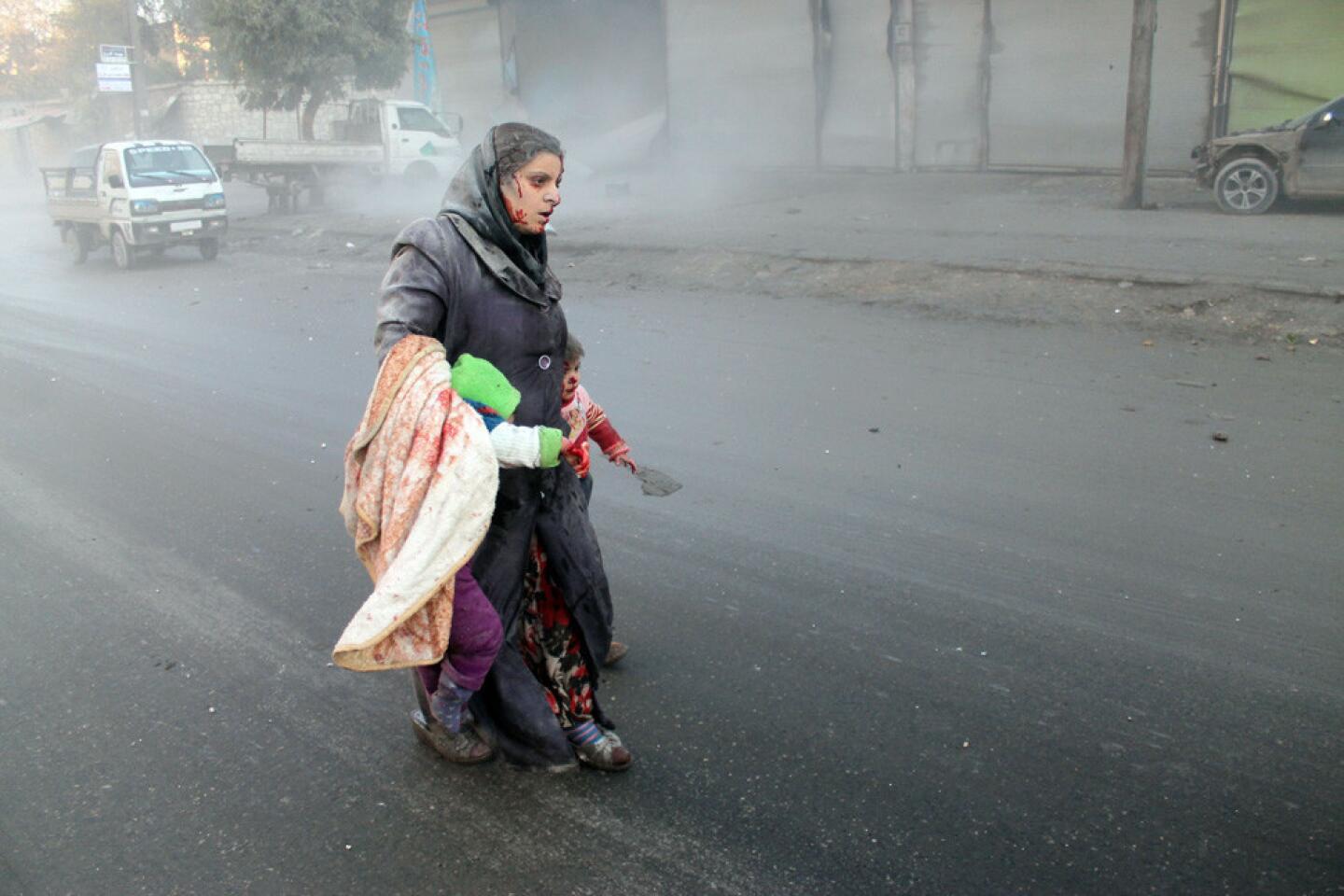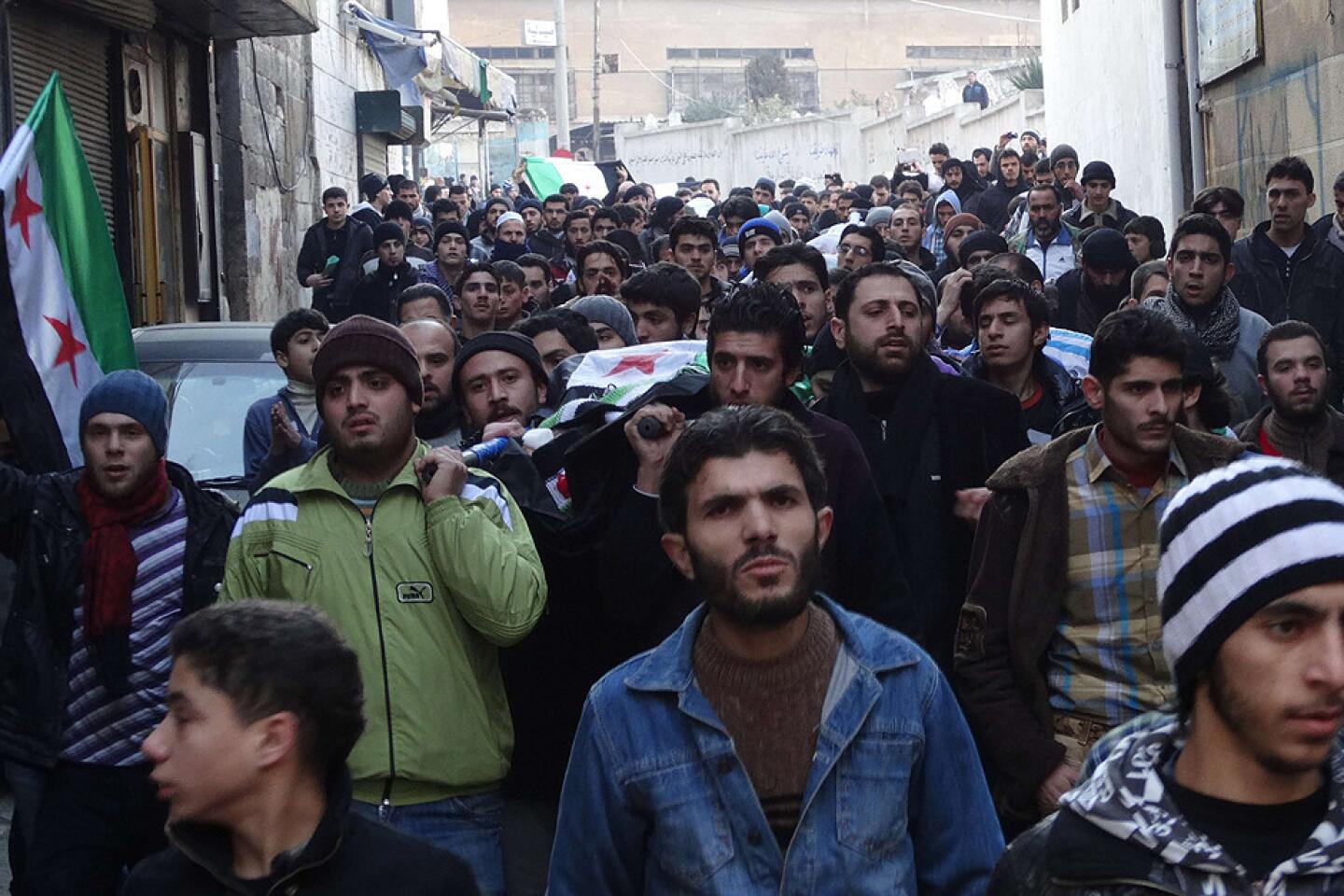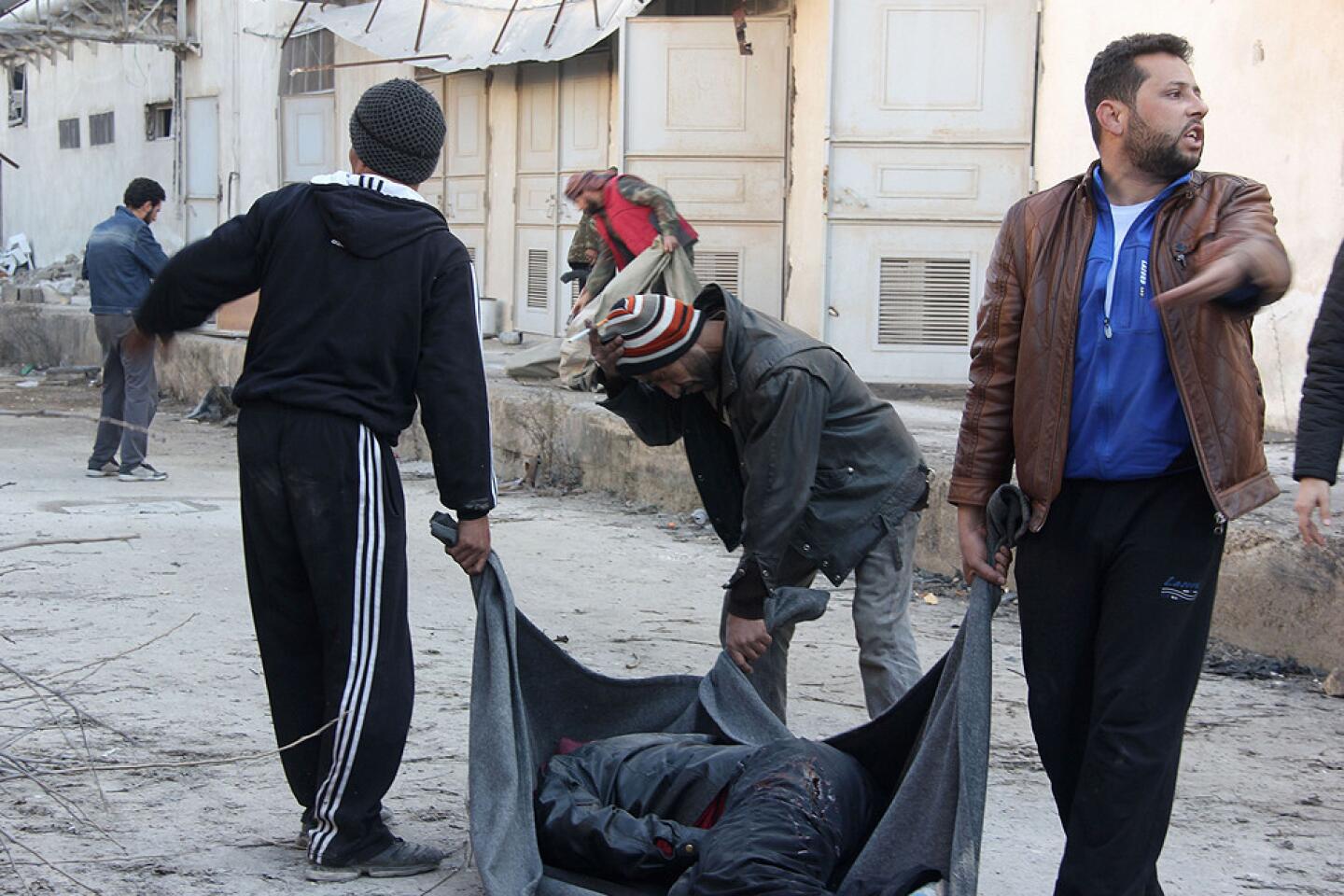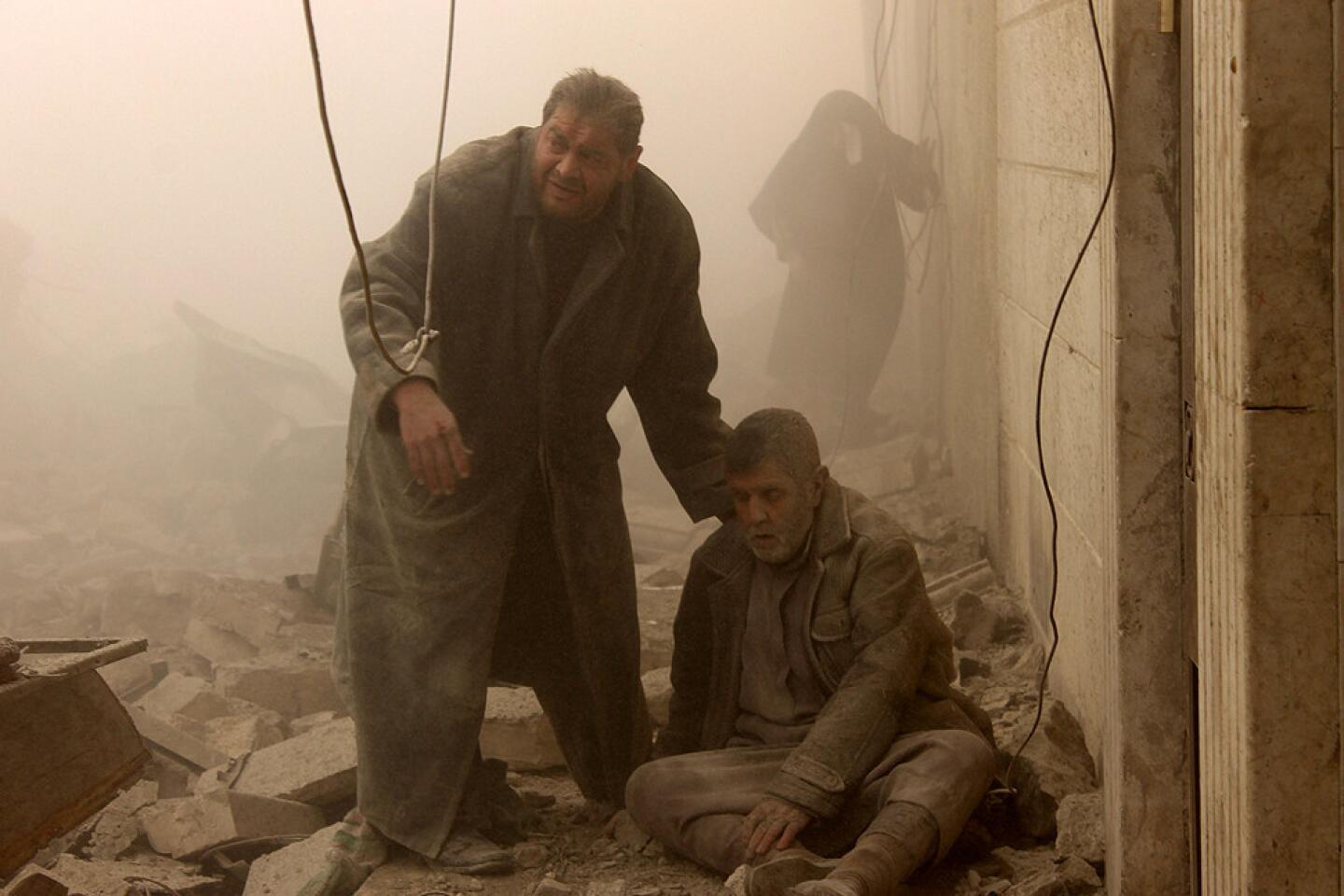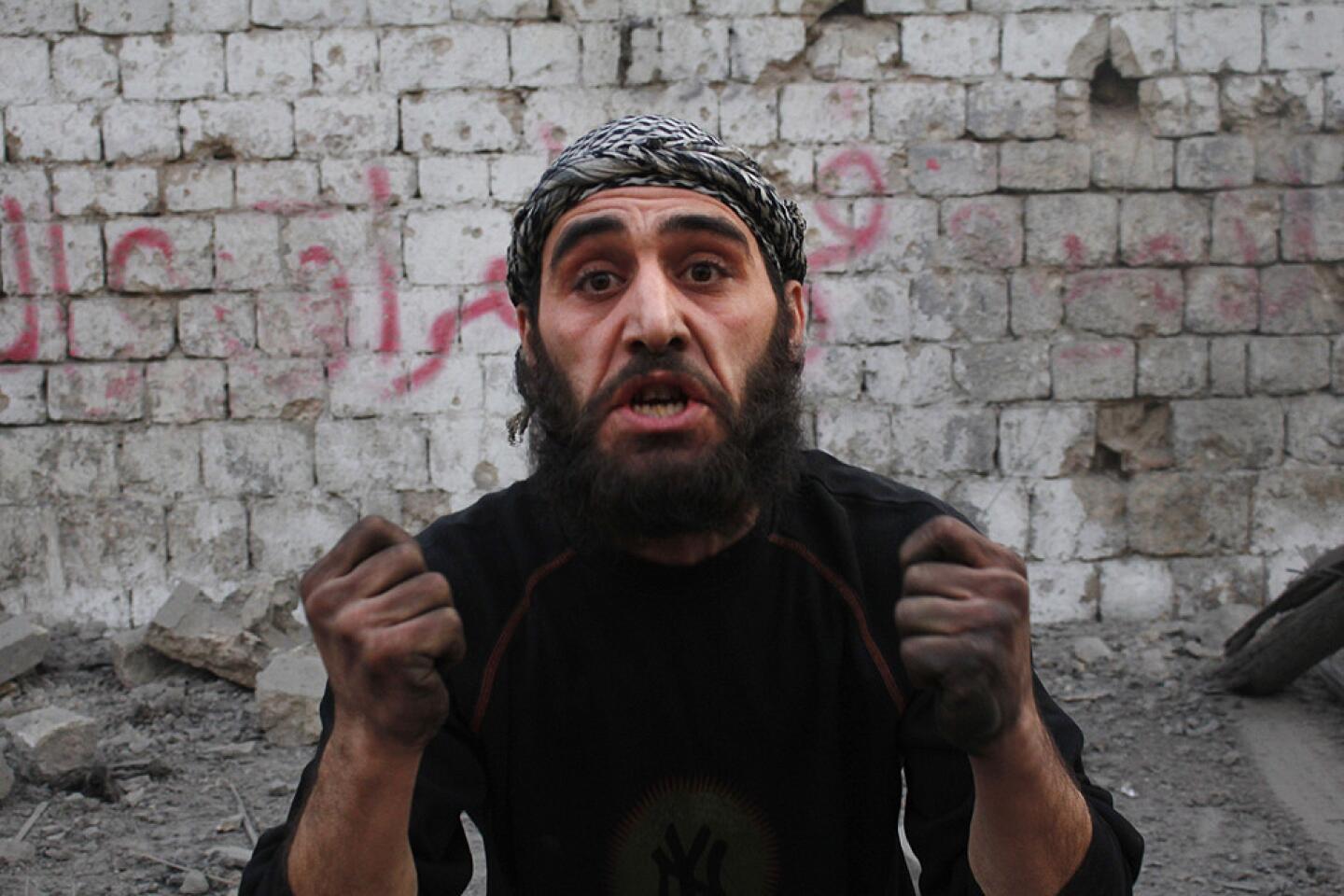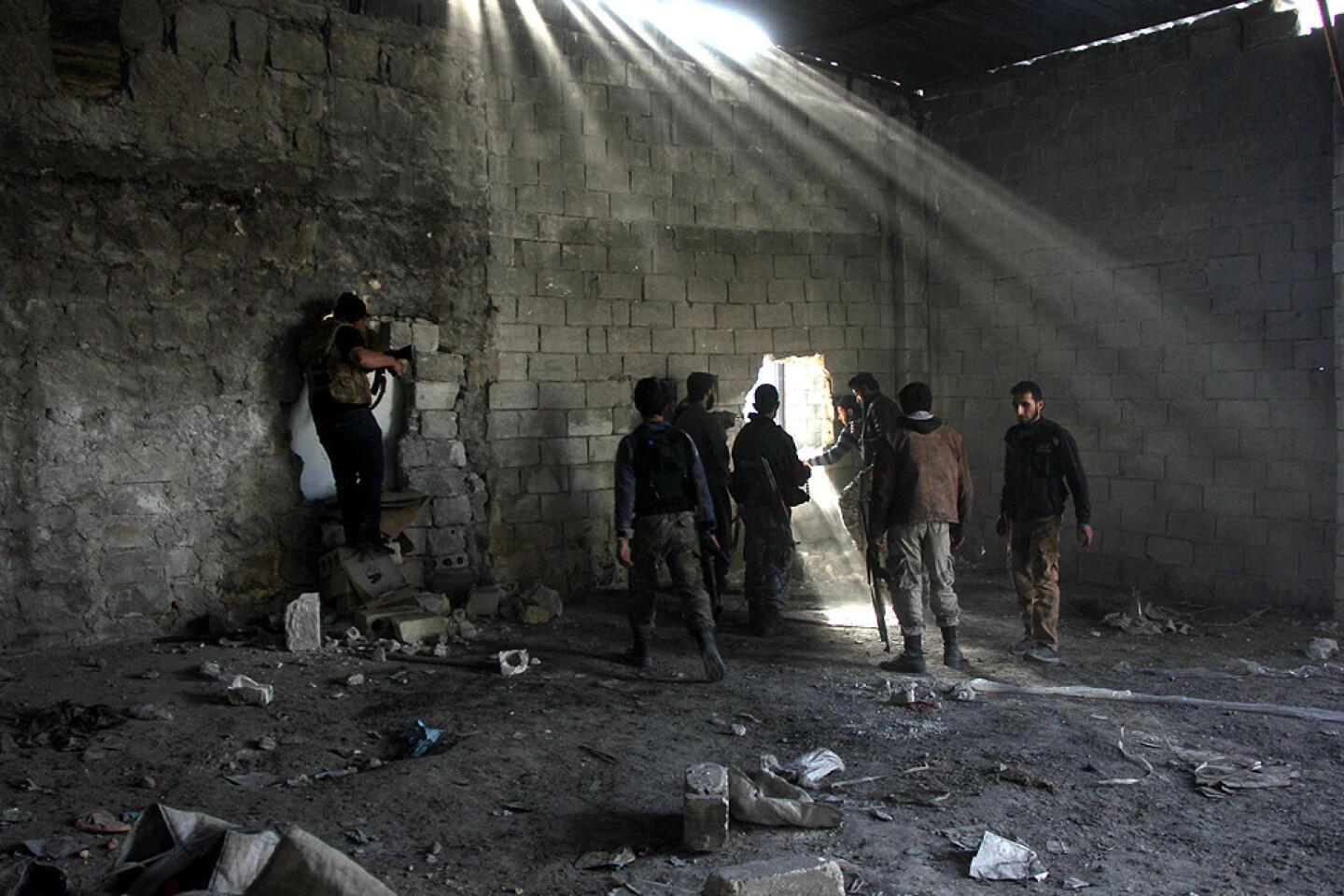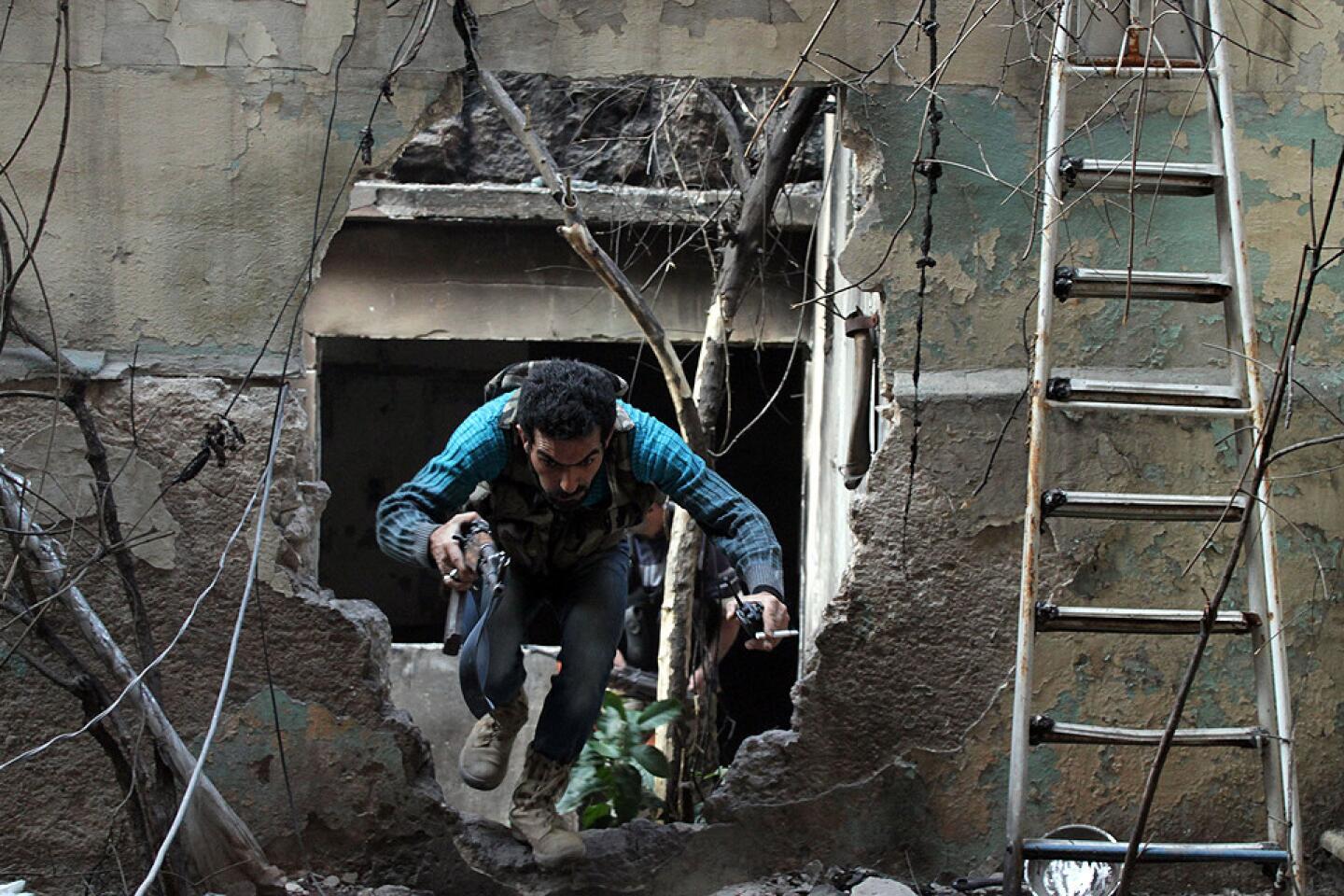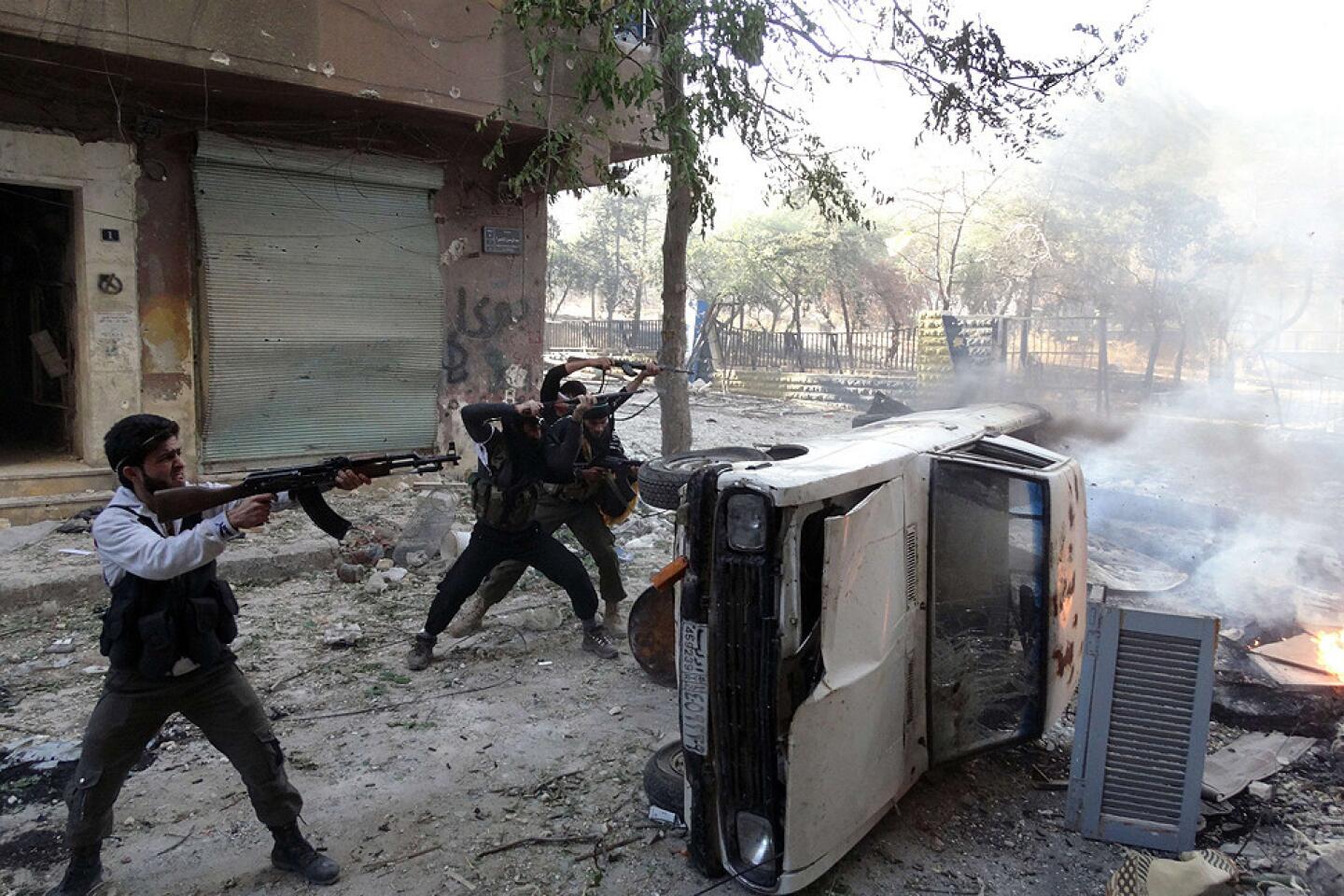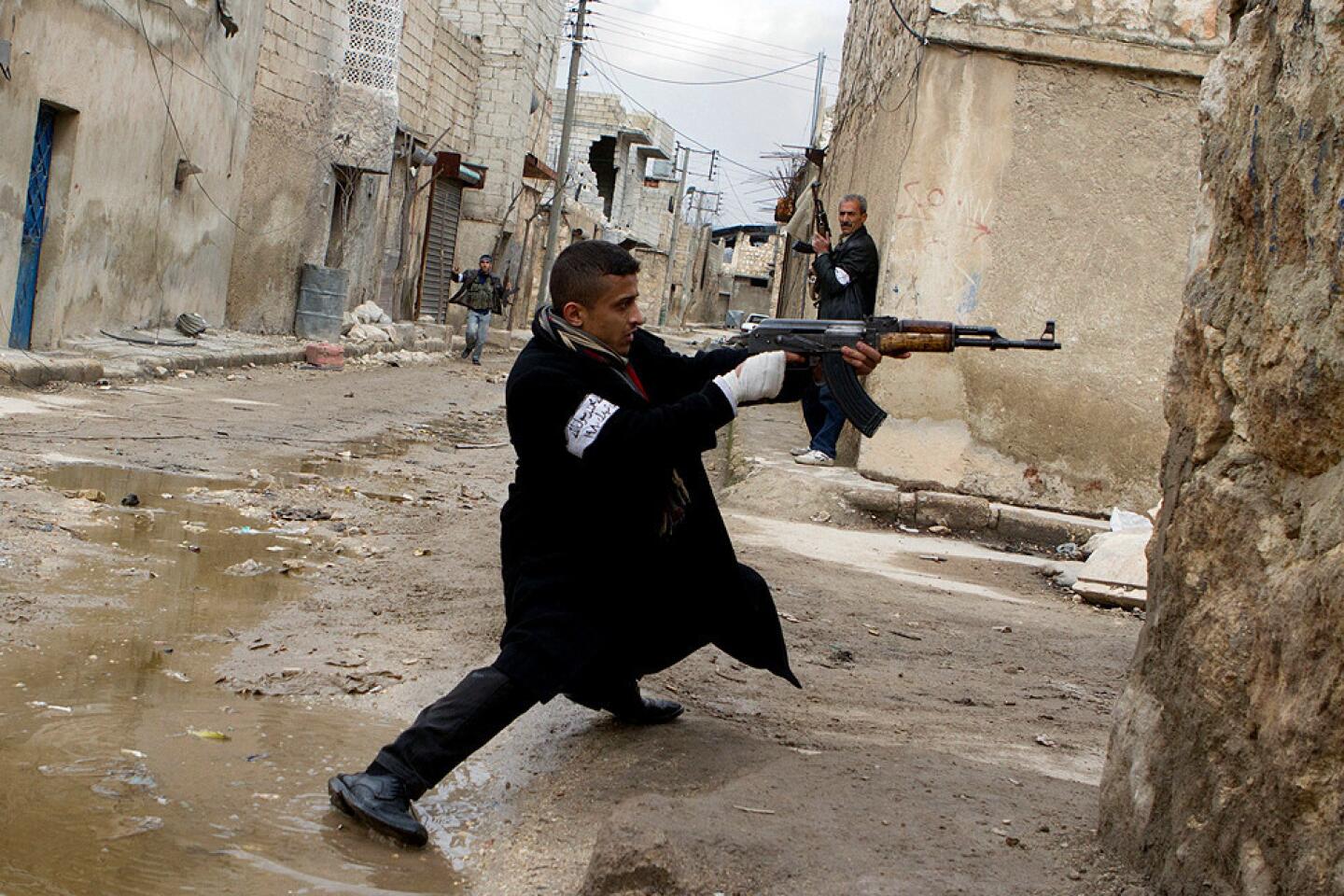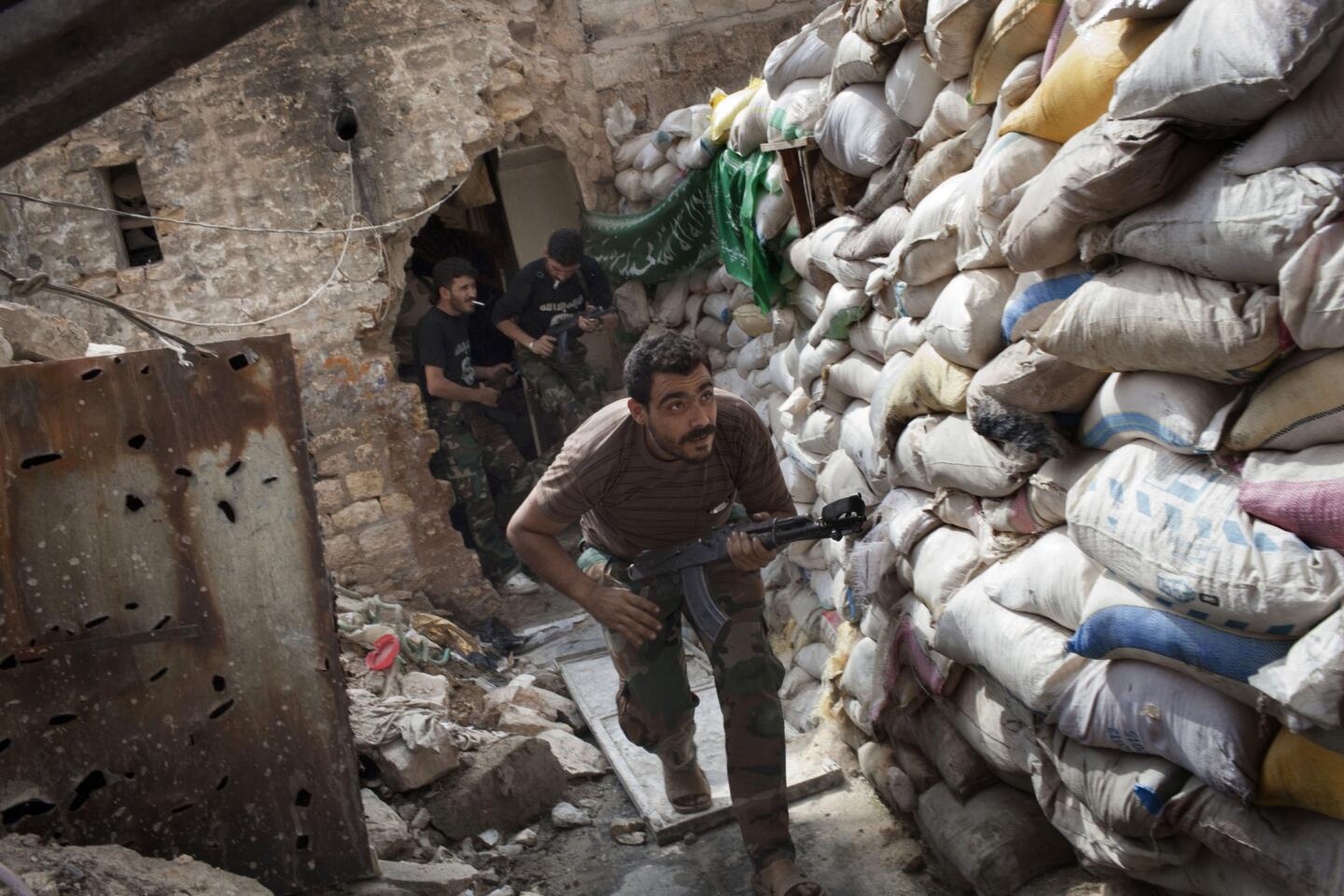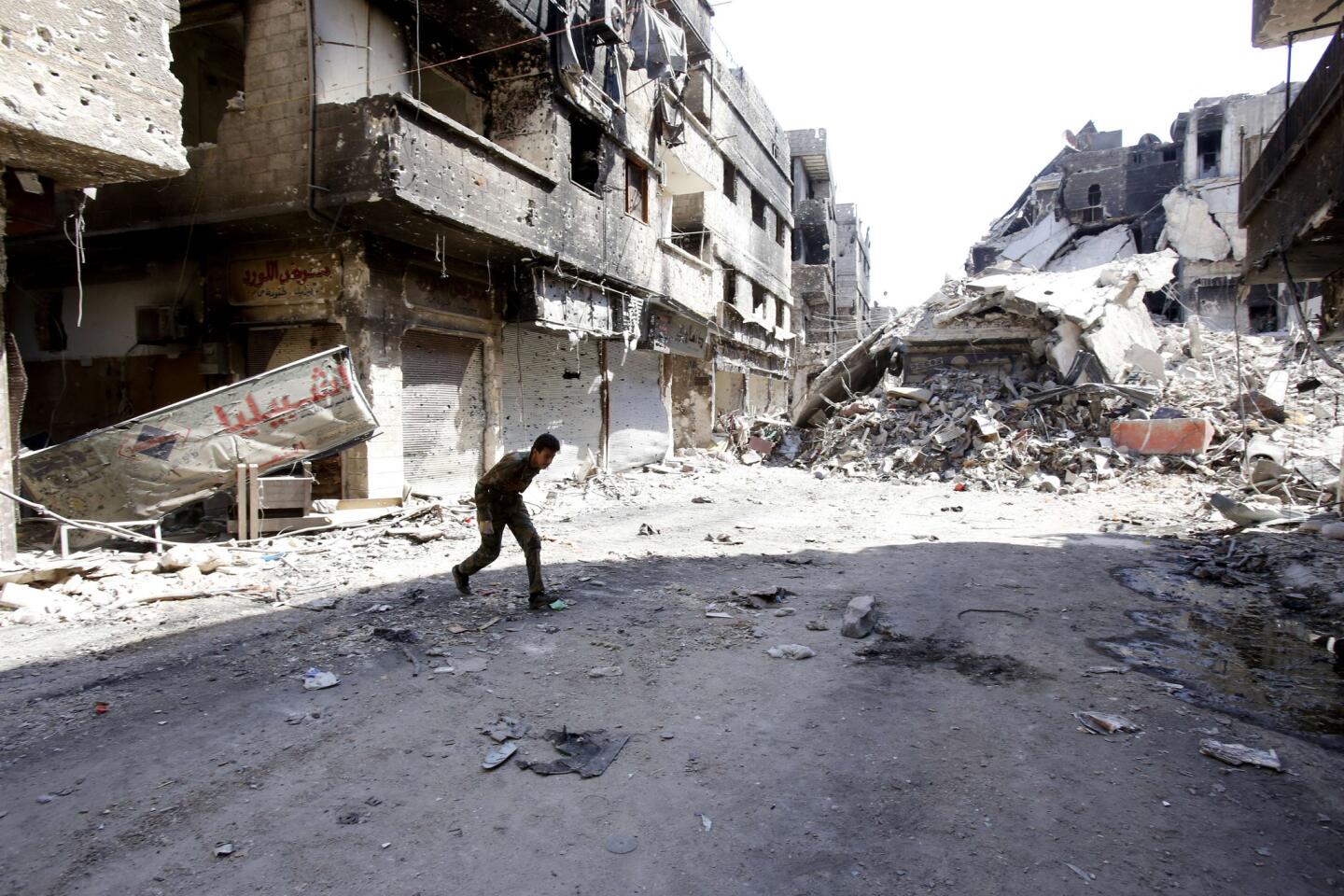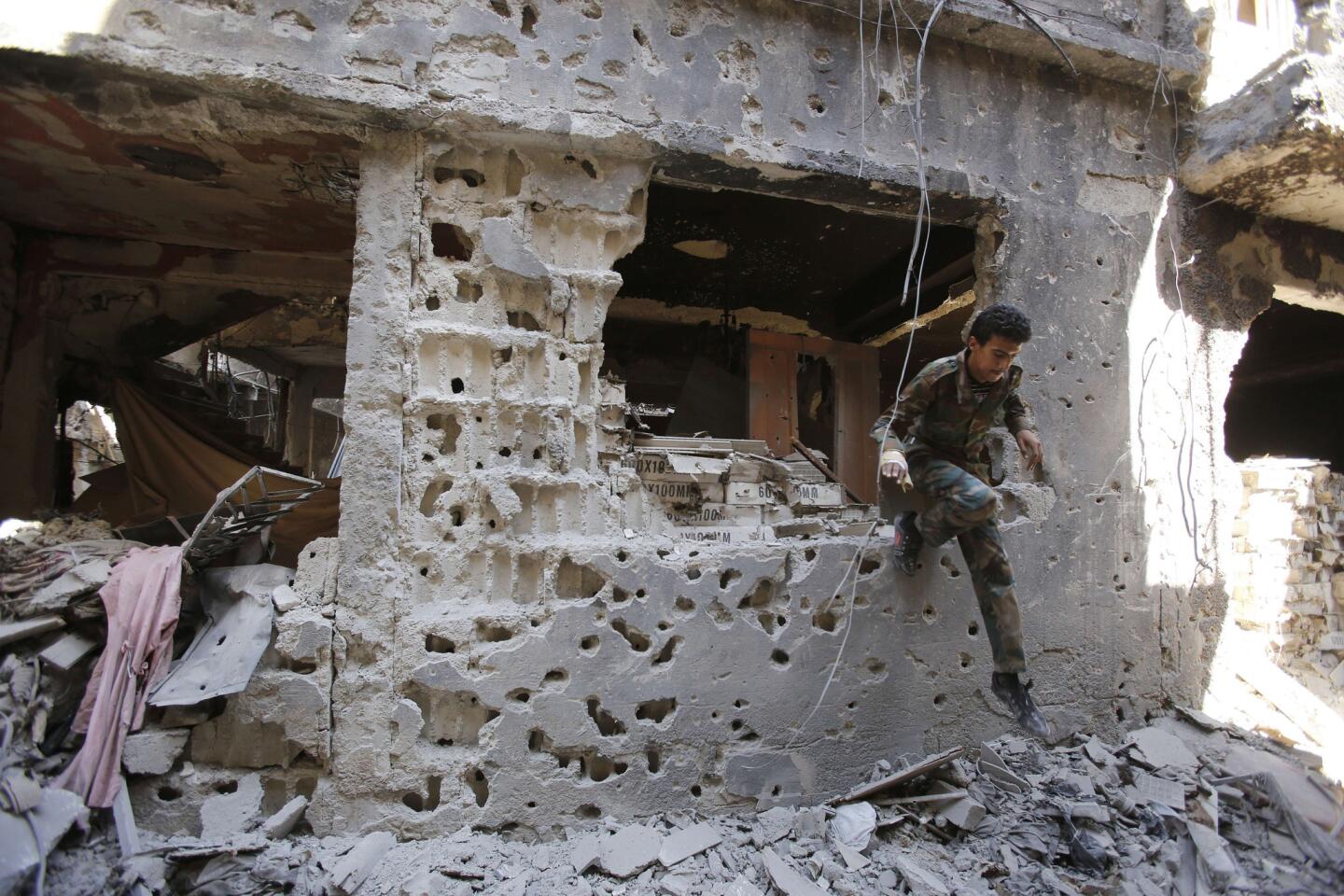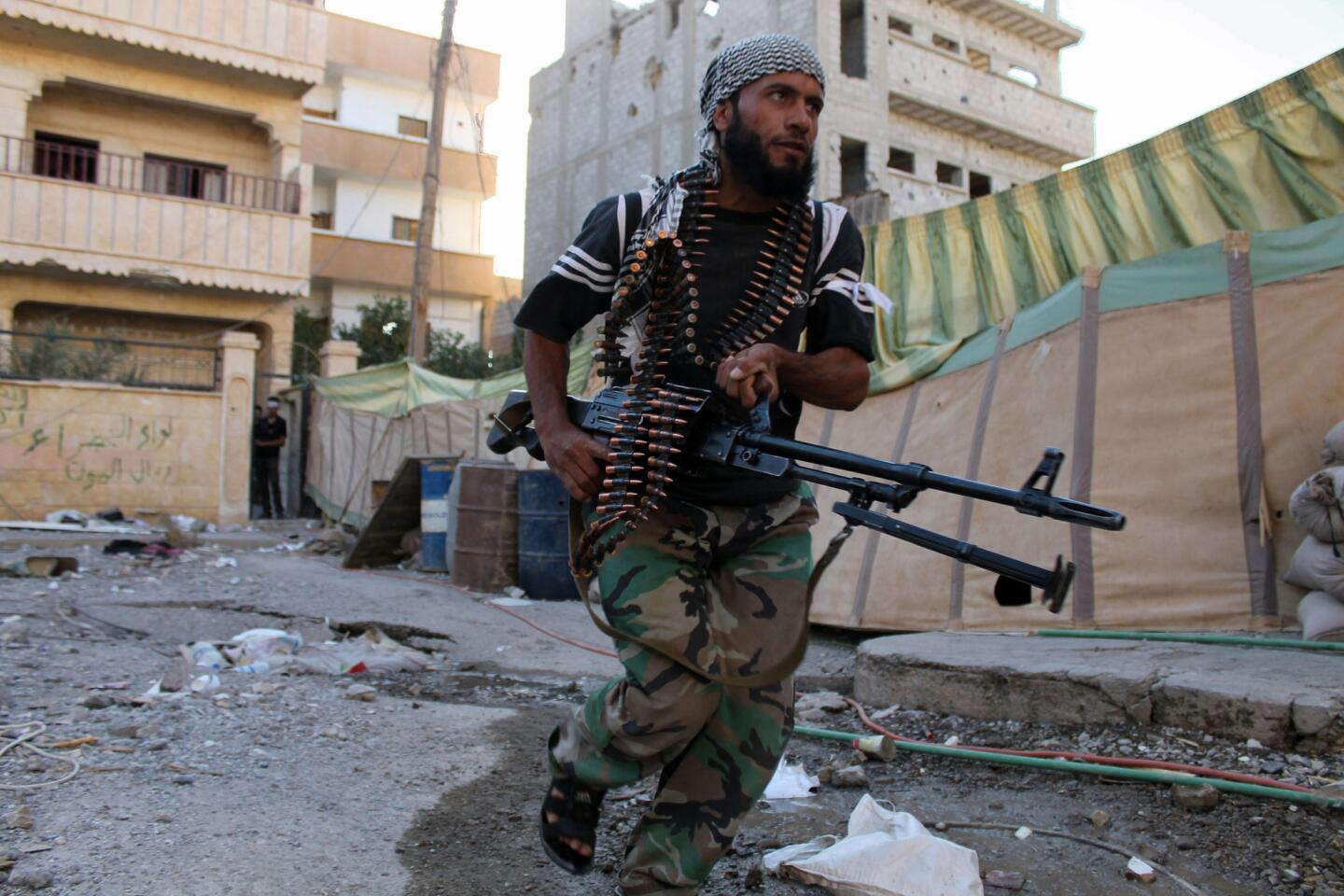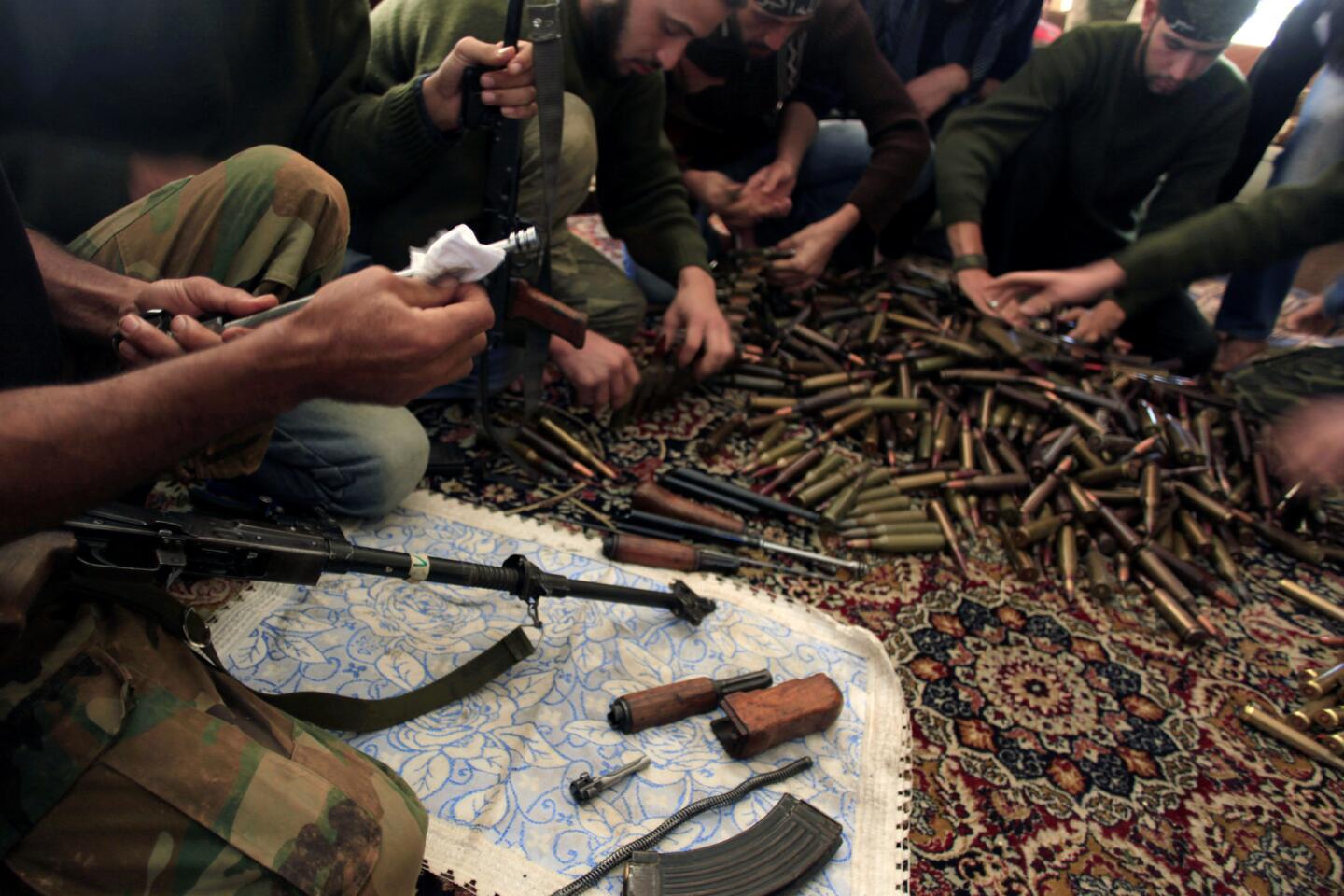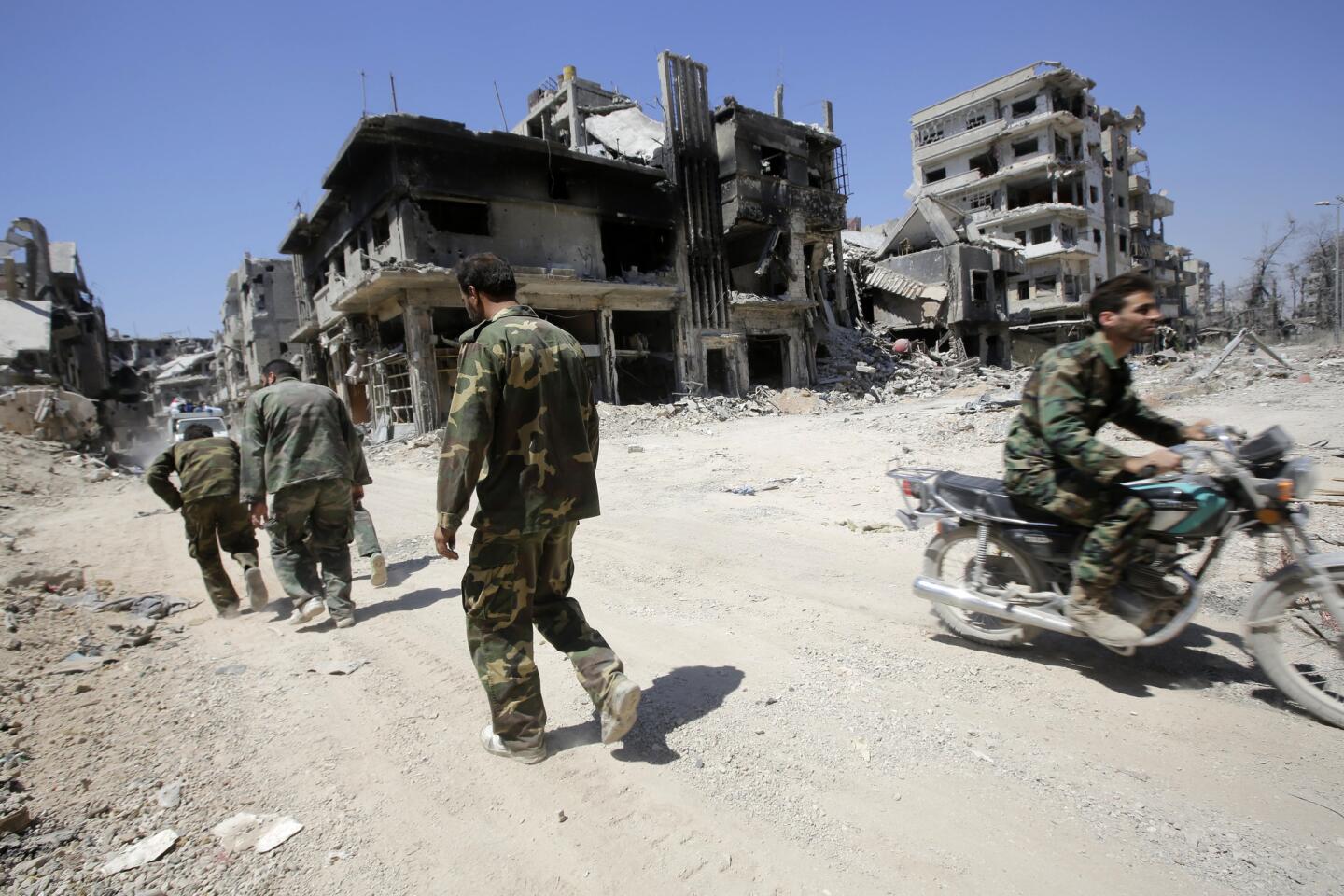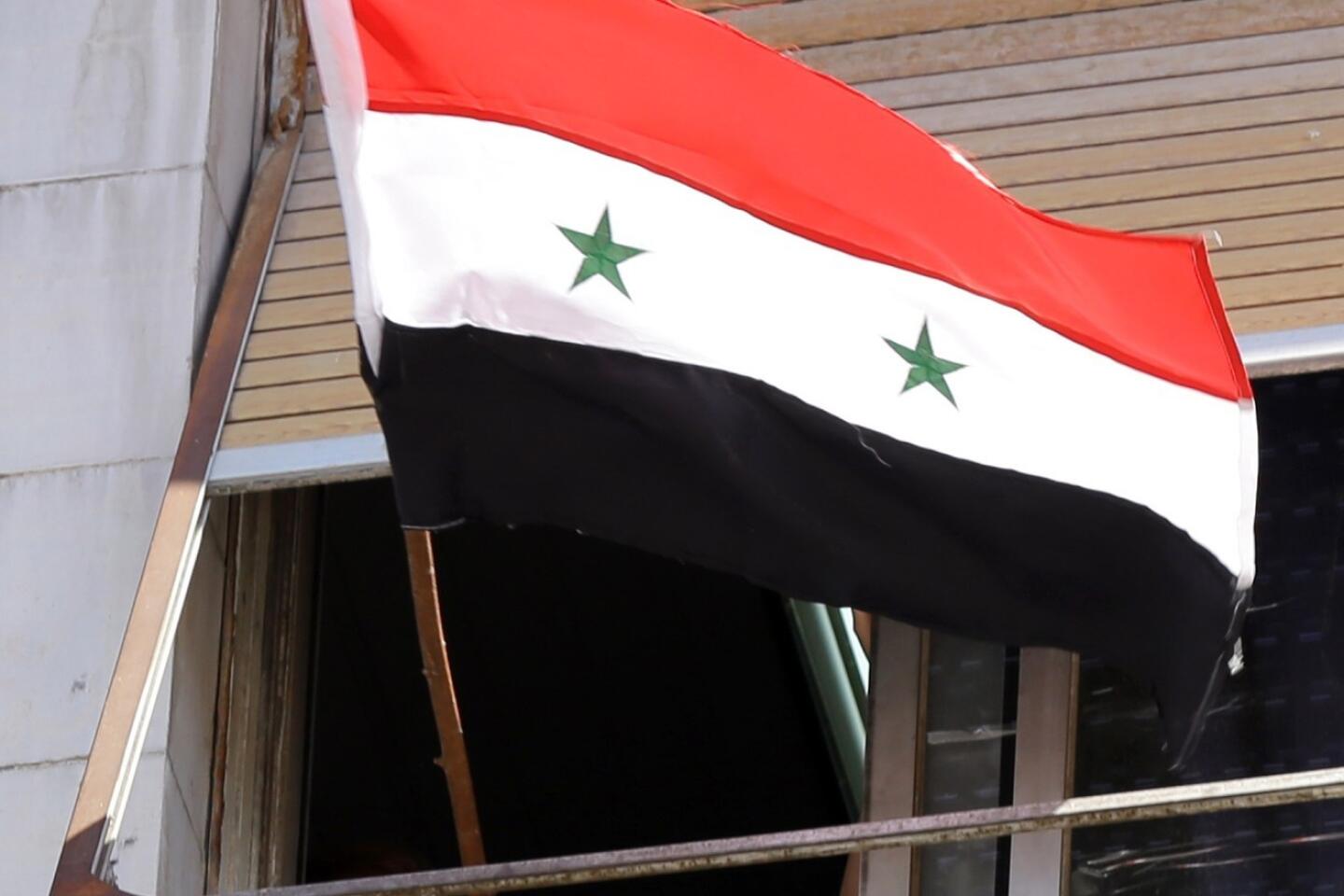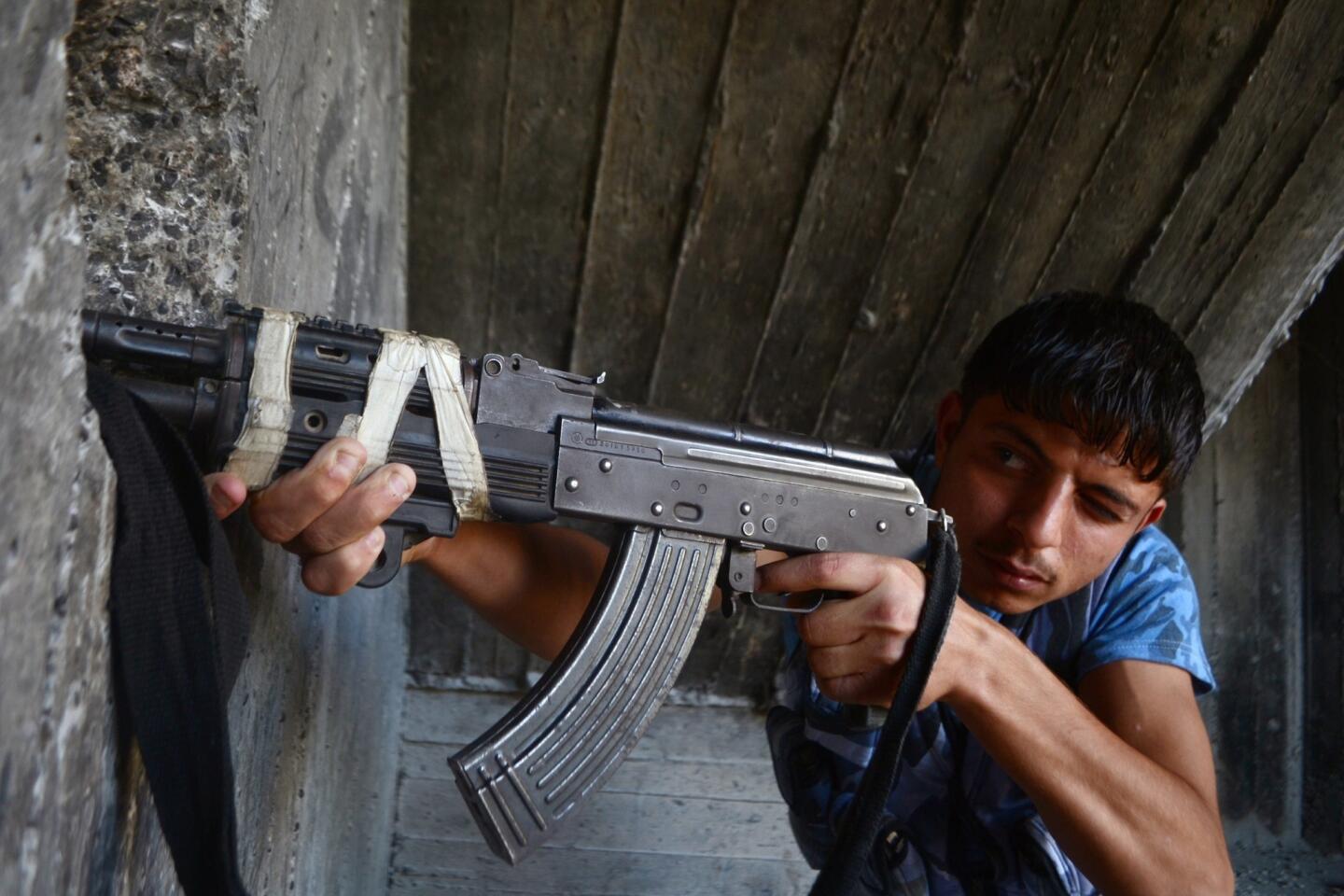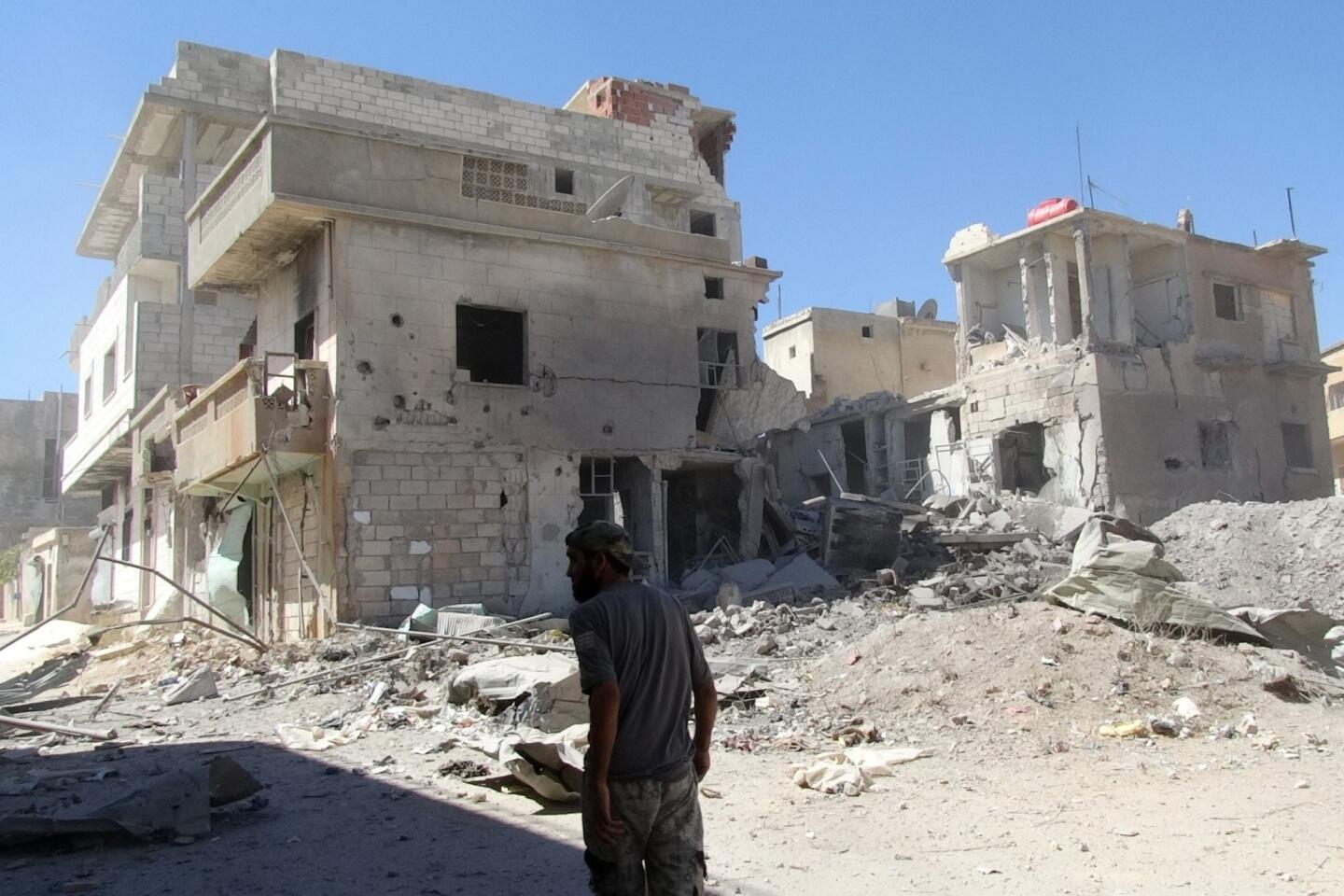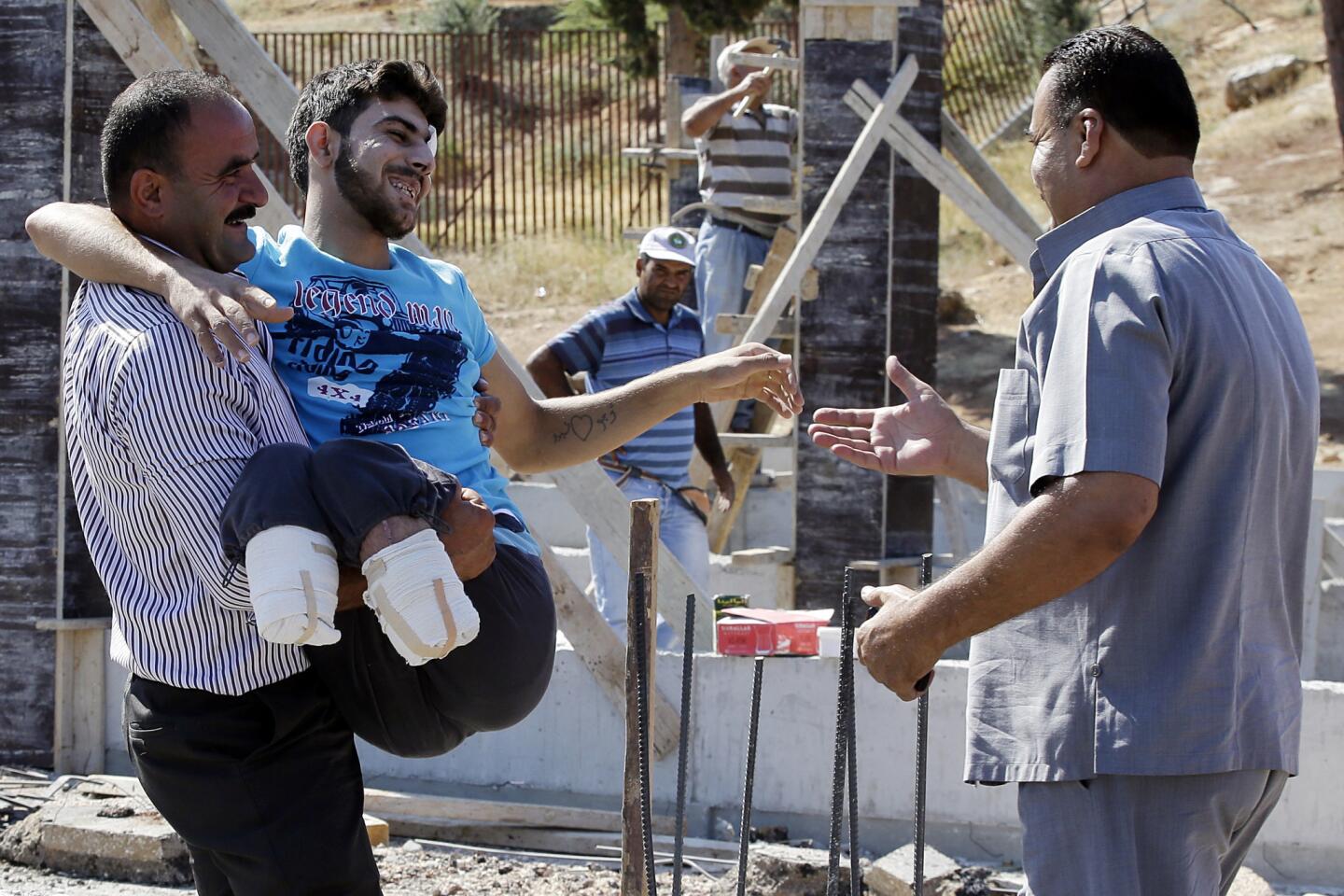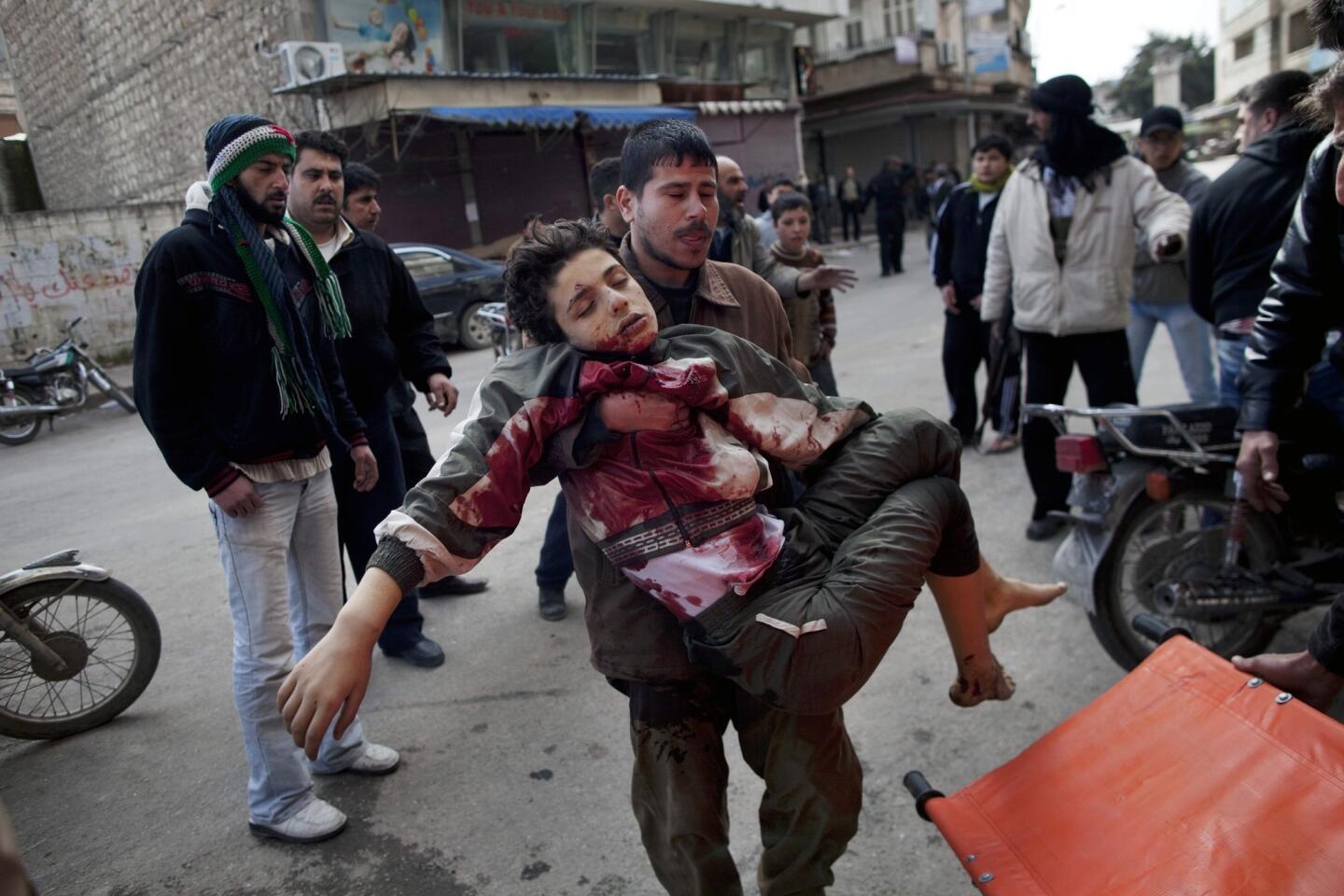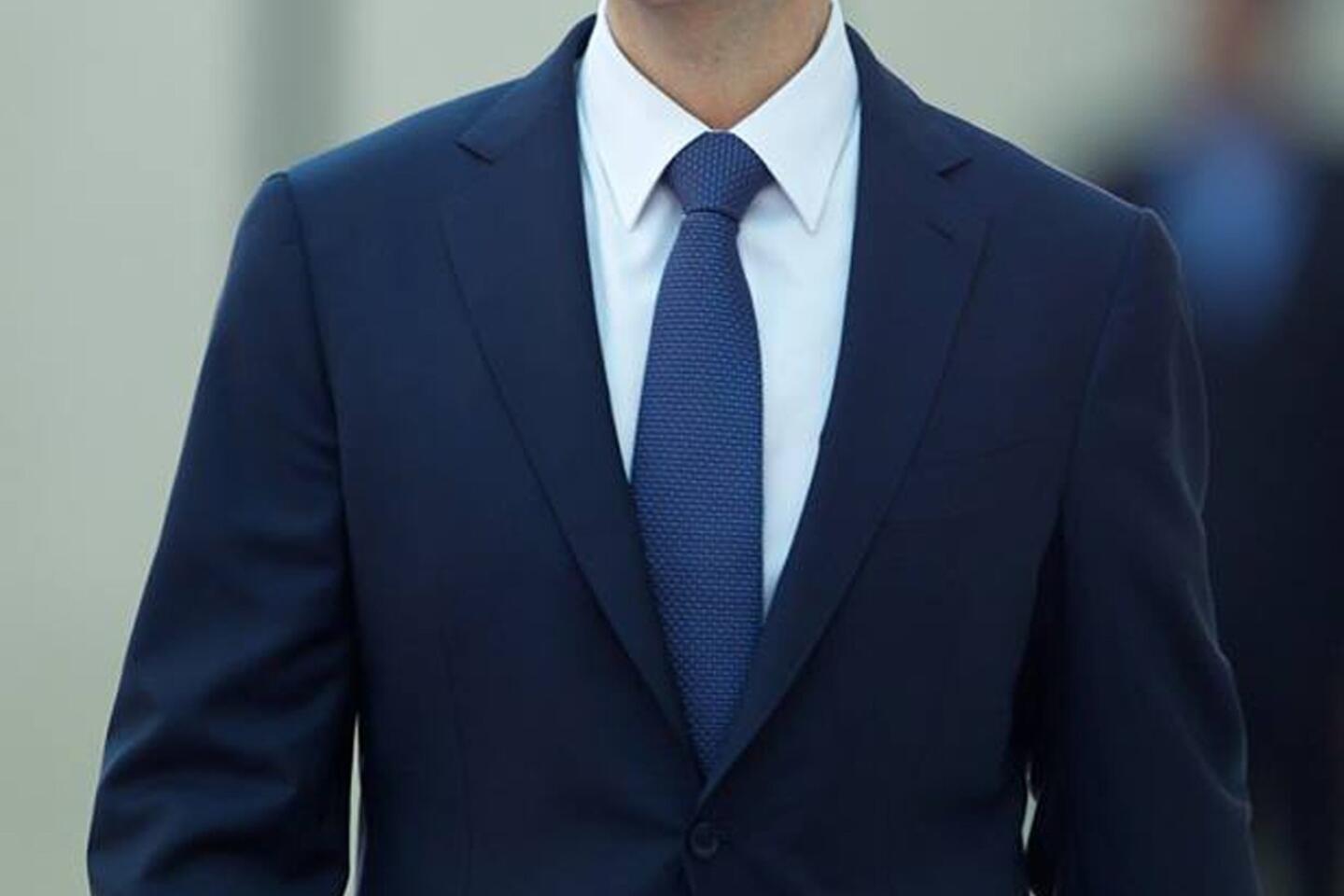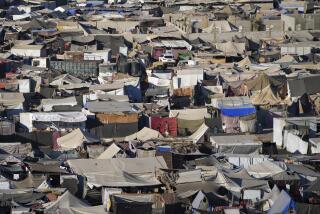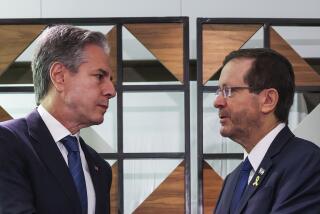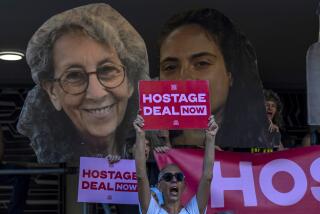Obama considers ways to ‘apply more pressure’ on Syria’s Bashar Assad
RANCHO MIRAGE, Calif. — President Obama is weighing a “wide range of policy tools and options” for stepping up pressure on Syrian President Bashar Assad to end his government’s attacks on civilians and rebel forces, a senior White House official said Saturday.
Obama is also looking at ways to counter the rising threat of Islamist extremists in Syria, said the senior advisor, who asked not to be identified while discussing internal deliberations.
In his last planned public remarks of the weekend, Obama told reporters Friday that he was looking at options other than military ones.
“There will be some intermediate steps that we can take to apply more pressure to the Assad regime,” Obama said, without offering specific examples, “and we’re going to be continuing to work with all the parties concerned to try to move forward on a diplomatic solution.”
After a late Friday dinner with Jordanian King Abdullah II, one of the United States’ closest Mideast allies, Obama planned to spend the long holiday weekend in seclusion at Sunnylands, a desert retreat. He planned to play golf with close friends and discuss the nearly 3-year-old civil war in Syria with top aides, including national security advisor Susan Rice.
Aides said Rice had prepared for a weekend of private conversations after several days in which the administration’s angst over Syria was clearly evident.
As he stood next to French President Francois Hollande at the White House on Tuesday, Obama said he wouldn’t deny “enormous frustration” over the failure of their shared strategy to end the troubles, but said he was still skeptical that military intervention would bring about the desired change. He and Hollande offered no new plan, promising continued support for moderate rebel factions.
At the same time, Obama criticized Russian leaders for threatening to veto a United Nations Security Council resolution calling on Assad to open humanitarian corridors to allow food and medicine to be delivered.
In Geneva on Saturday, the chief United Nations official at the Syrian peace talks apologized to the people of the embattled nation after a second round of negotiations between representatives of the Assad government and the U.S.-backed opposition bloc ended without making progress toward resolving the conflict.
“I am very, very sorry,” Lakhdar Brahimi, U.N. mediator in the talks, told reporters in a downbeat closing note after the session adjourned. “I apologize [to] the Syrian people.... In these two rounds we haven’t helped them very much.”
Many Syrians’ hopes were “very high” that the talks could have represented “the beginning of the coming out of this horrible crisis,” a somber Brahimi said.
Few observers, though, had expected any kind of breakthrough in Geneva to end the fighting, which has left more than 100,000 people dead and created a humanitarian catastrophe.
Brahimi seemed frustrated that the two sides could not even agree on an agenda or a sequencing of items to be discussed. Still, he seemed to signal the likelihood that a third session of talks would be convened, asking each side to reflect on its positions. No date was set.
Brahimi was planning to brief U.N. Secretary-General Ban Ki-moon in New York, and was also expected to meet with the top U.S. and Russian diplomats, Secretary of State John F. Kerry and Foreign Minister Sergei Lavrov. Washington and Moscow, a Syria ally, initiated the talks, and both nations insist that a political solution is the only way to resolve the crisis.
Obama had made it clear late Friday while with Abdullah that conditions in Syria were on his mind.
“We’ll be working aggressively at the United Nations level and at the regional level to try to provide basic humanitarian assistance and access to people who are suffering tremendously as a consequence of the war inside of Syria,” Obama said. “But we’re also going to have to solve the underlying problem: a regime led by Bashar al Assad that has shown very little regard for the well-being of his people. He’s attacked civilians in ruthless ways. We are going to need a political transition in that region.”
Obama’s approach is a “dead-end strategy,” said James Phillips, senior research fellow for Middle Eastern affairs at the Heritage Foundation.
“The administration puts diplomacy as the first tool but, unless there’s pressure on Assad to accept an agreement, he’s not going to do it,” Phillips said. “The whole move to a diplomatic conference is premature and wishful thinking. I think Secretary Kerry realizes that and is advocating for more military support, but he’s getting resistance from the White House.”
Jon Alterman, Middle East director at the Center for Strategic and International Studies, agreed that it’s “hard to argue our policy is producing the desired outcomes,” but said “that’s not to say any other policy would produce better outcomes.”
“The administration remains concerned about being sucked into an escalating conflict, and it’s conscious that the public isn’t supportive of direct U.S. engagement,” he said. “A broad sense in the Middle East that there are no circumstances that would provoke deeper U.S. engagement has diminished U.S. leverage at a time that Assad is growing stronger and ‘jihadis’ are becoming a larger part of the opposition forces. Neither are in the U.S. interest.”
The president is expected to stay in Rancho Mirage until Presidents Day, while First Lady Michelle Obama and their daughters are on a ski vacation in Aspen, Colo. On Saturday, Obama signed a bill to raise the limit on the nation’s debt for another year and one to reverse pension cuts for some veterans, part of last year’s budget accord that both parties came to regret.
Parsons reported from Rancho Mirage and McDonnell from Beirut.
More to Read
Sign up for Essential California
The most important California stories and recommendations in your inbox every morning.
You may occasionally receive promotional content from the Los Angeles Times.
